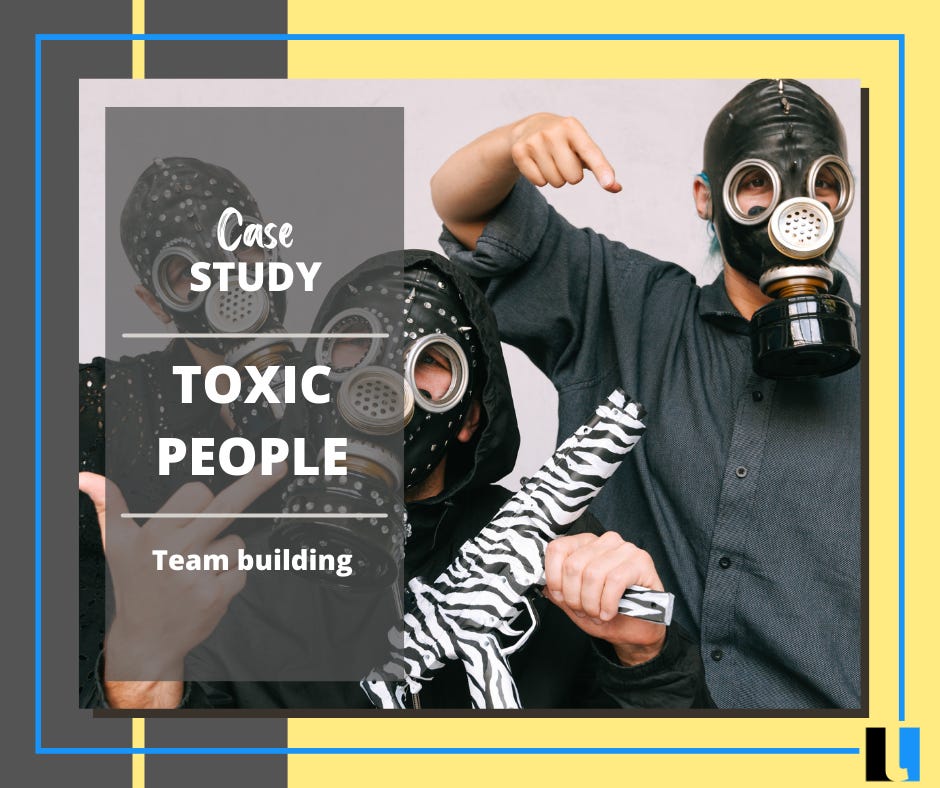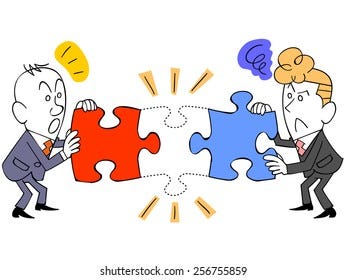You don’t want to work with toxic people.
They are the reason people run away from their jobs. Blah. Who would like to suffer because someone is a bully, a micromanager, a victim, chaos, etc? There are many toxic behaviors.
The longer you work, the more likely you will meet toxic coworkers.
But what if it's someone on your level?
Sebastian was an HR manager in a mid-sized company. He liked his job but communication with other managers was tricky. In particular, the finance manager was difficult to talk to. Rolf focused on budgets and numbers. He was against innovation and laughed at others' development ideas.
“If you need money for that, save some first."
No activity could go ahead without Rolf’s approval. Others got used to begging for his ‘yes’. Regardless of how great your pitch was, it was never good enough. He demanded more explanations, more materials, and more meetings.
If you exceeded your budget, he pointed a finger at you in front of the CEO. Rolf was no team player. His negativity undermined other managers.
What would you do to ease such a situation? Was Rolf toxic?
Do personalities or priorities clash?
What do high performers and toxic people have in common? They think they know better.
The CEO trusted Rolf’s opinion because he was “the guard of the treasure”. They started the company together. Yet, other managers did not get along with him. They called him stubborn and toxic. Sebastian set out on a quest to learn more.
He asked his team. Did they find him toxic? No, Rolf treated his team well. He was a firm but fair boss who cared about his team. Some called him overprotective. They also said he often complained about others who spent the budget irresponsibly.
It was obvious Rolf had beef with everyone who wanted to spend ‘his’ money.
His behavior was narrow-minded. He clearly did not understand the purpose of teamwork in the organization. He wanted to be the CEO's beloved pet.
Sebastian wondered if there was a way to get him to collaborate.
Values and teamwork
Teamwork is not automatic. Different personalities, priorities, and skills can create tension and a toxic atmosphere.
Sebastian invited his friend who facilitated workshops about values. The external moderator brought fresh air to the management meeting. They talked about their values.
In the beginning, Rod refused to participate because he found it stupid. Yet, as the conversation progressed, he, too, listened.
Most managers valued flexibility, support, continuous learning, development, and innovation in their fields. Rolf, on the other hand, mentioned transparency, clarity on results, detail orientation, and tidiness.
Clearly, values were not aligned in the team.
Image:
Teamwork can’t work if people don’t share common values and goals. Sebastian knew that. So what now? Should he try to change Rolf or what?
Word against word
Keep reading with a 7-day free trial
Subscribe to leadink to keep reading this post and get 7 days of free access to the full post archives.






